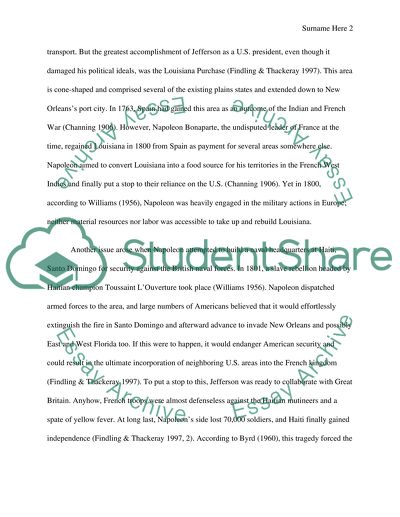Cite this document
(“Louisiana Purchase: the Most Important Acquisition of the US History Research Paper”, n.d.)
Retrieved from https://studentshare.org/history/1437981-louisiana-purchase-the-most-important-acquisition
Retrieved from https://studentshare.org/history/1437981-louisiana-purchase-the-most-important-acquisition
(Louisiana Purchase: The Most Important Acquisition of the US History Research Paper)
https://studentshare.org/history/1437981-louisiana-purchase-the-most-important-acquisition.
https://studentshare.org/history/1437981-louisiana-purchase-the-most-important-acquisition.
“Louisiana Purchase: The Most Important Acquisition of the US History Research Paper”, n.d. https://studentshare.org/history/1437981-louisiana-purchase-the-most-important-acquisition.


